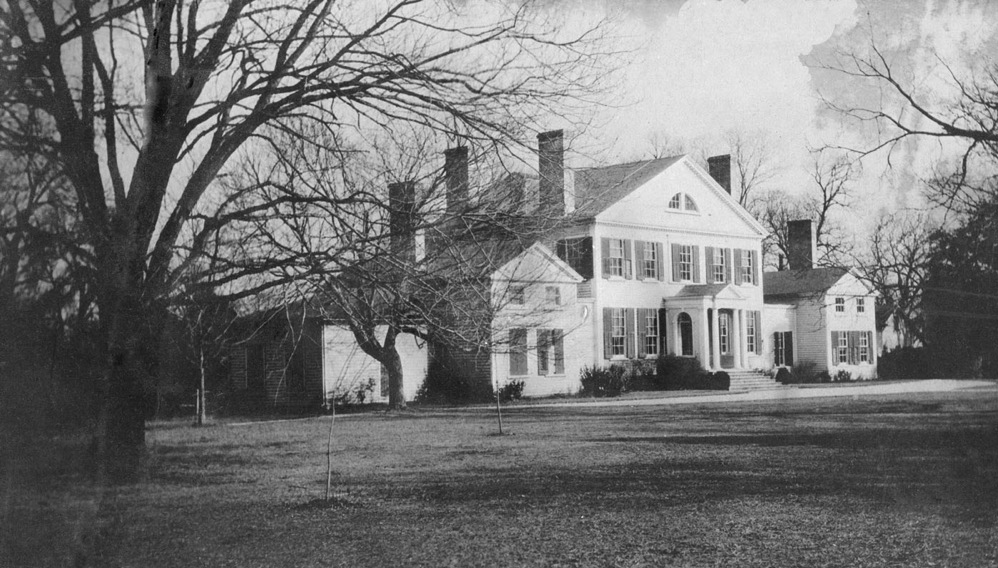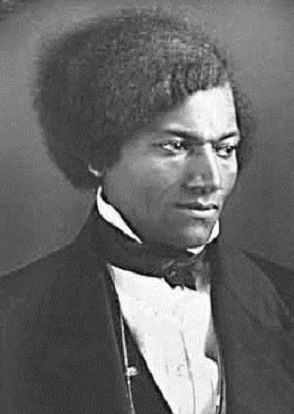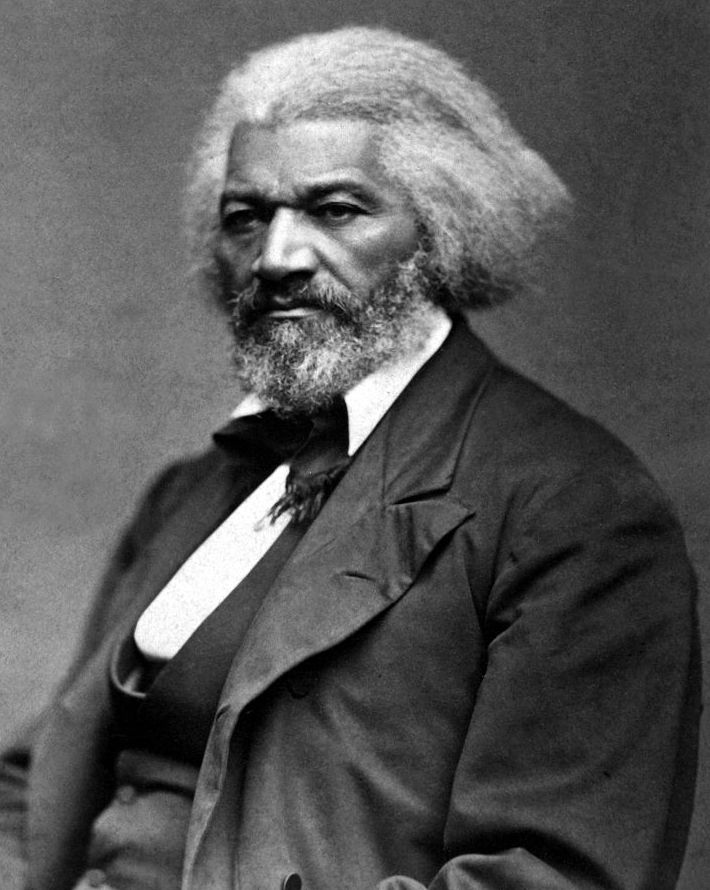(1818-1895)
Born Frederick Augustus Washington Bailey (changed last name to Douglass in 1838) in the state of Maryland in February 1818, he was the fourth generation of his family to be born into slavery. Not knowing his father and separated from his mother during infancy, he was raised by his grandparents. At around the age of seven, his grandmother was directed to take Douglass, a distance of twelve miles, to the home of their master, Colonial Edward Lloyd, on Lloyd Plantation. Although he rarely saw his mother, it was around this time that she passed away. It was at the Lloyd Plantation where Douglass learned what it meant to be a slave. He observed the daily suffering of slavery: hard labor, starvation, harsh living conditions, and the brutal whippings.
 Lloyd Plantation - Wye House
Lloyd Plantation - Wye HouseAt the age of ten, he was sent to Baltimore to live with Hugh and Sophia Auld, extended family members of the plantation owner. “If, however, I found in my new home hardship, hunger, whipping, and nakedness, I had the consolation that I should not have escaped any one of them by staying” (Douglass 34). Sophia Auld taught Douglass the alphabet and he began to spell three and four-letter words. Douglass purchased a book called The Columbian Orator to continue working on his reading. Naturally, his success with reading would create the desire within him to learn how to write, and so, he taught himself how to write.
At fifteen, Douglass was sent back to Maryland to work in the fields. He rebelled and tried to escape but failed. His slave owner sent him back to Baltimore. In Baltimore, he met Anna Murray, a free black woman. Anna helped Douglass escape to New York City. Douglass and Anna married, and they moved to New Bedford, Massachusetts. They felt moving to New Bedford would be safer for Douglass. This was when they changed their last name to Douglass. They started their family, and they had five children: Rosetta, Lewis, Charles, Annie, and Frederick Jr.
 |
 |
|
Frederick Douglass |
Anna Murray |
In New Bedford, Douglass began attending abolitionist meetings and became recognized as an orator. He became a spokesperson for the Massachusetts Anti-slavery Society. In 1845, he published his book, Narrative of the Life of Frederick Douglass, An American Slave. It is a tell all tale revealing his identity and his life as a slave. After publishing his book, he feared retaliation and recapture and set sail for England. While abroad, he gave speeches about his book and continued pressing his abolitionist message. Before Douglass returned home, his status as an escaped slave was addressed. Members of the British Abolitionist Movement paid Douglass’s owner for his freedom-they paid 150 pounds sterling.
Upon his return to the United States, Douglass moved his family to Rochester, New York, where he purchased a printing press and began running his own newspaper. He named the paper The North Star. In 1855, he published a second autobiography, My Bondage and My Freedom. He began to actively support women’s rights, anti-slavery political parties, and to assist the Underground Railroad.
In 1861, the Civil War began, and in 1863, Douglass became the recruiting agent for black troops for the U.S. Government-Union Army. Douglass visited the White House to discuss with President Lincoln the discrimination against the black troops within the Union Army. He would visit with President Lincoln many more times, he even attended Lincoln’s second inauguration. During Douglass’s lifetime, he served under five presidents in high-ranking federal positions: Abraham Lincoln, Ulysses S. Grant, James A. Garfield, Grover Cleveland, and Benjamin Harrison.
In 1882, his deliverer from slavery and wife of 44 years, Anna, died. In 1884, he married Helen Pitts, his former secretary. Their marriage was somewhat taboo because she was twenty years younger and white. In 1892, he wrote the third edition of his autobiography titled Life and Times of Frederick Douglass. On February 20th, 1895, after returning home from a women’s rights meeting, Douglass had a heart attack and passed away. He was 77 years old. He had lived 57 years as a free man.
 |
 |
|
Helen Pitts |
Frederick Douglass |
Once Douglass learned the value of words and learned how to read and write, he continued to work towards becoming a totally literate man. He was an admired orator and a successful editor for over 50 years. He took his words and used them to fight social injustice. He fought for women’s rights, freedom, and civil rights for all Americans.